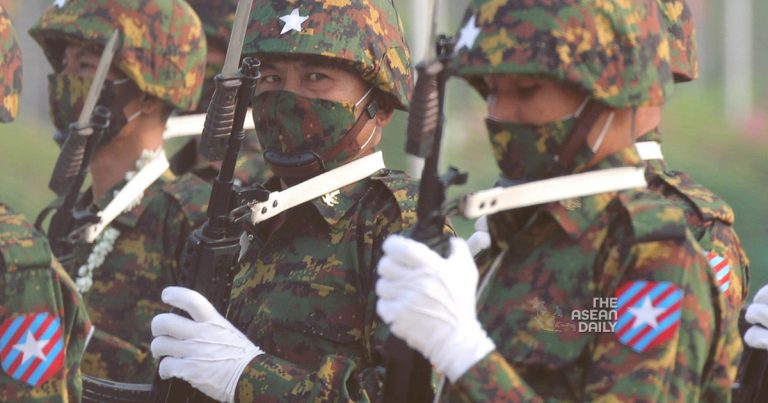1-2-2024 (WASHINGTON) On the third anniversary of the Myanmar coup, the United States has imposed additional sanctions on the military junta. The move comes as Washington targets two entities and several individuals closely associated with the junta.
The recent sanctions are aimed at hampering the junta’s ability to conduct aerial bombings in its ongoing conflict with anti-coup forces, which have often resulted in civilian casualties. Additionally, the sanctions aim to disrupt the military’s arms production capabilities.
The US Treasury Department released a statement identifying the targets of the sanctions. The Shwe Byain Phyu Group of Companies, along with its owner Thein Win Zaw, his wife, and two adult children, have been singled out. The company is involved in importing and distributing petroleum for the military and has a profit-sharing relationship with Myanmar Economic Holdings Ltd (MEHL), a military conglomerate that was previously sanctioned by the US in 2021.
Furthermore, the US has targeted MEHL-owned shipping company Myanmar Five Star Line, which is responsible for transporting materials used in domestic weapons production for the military.
According to the Treasury Department, these entities have facilitated the junta’s access to foreign currency and the importation of petroleum and other essential materials. The objective of the sanctions is to undermine the regime’s revenue sources that support military activities against civilians.
State Department spokesperson Matthew Miller emphasized that the US is taking this action to urge the military junta to change its course and stop its violent oppression of the Burmese people.
Myanmar has been embroiled in conflict since the military seized power in a coup in 2021, abruptly ending a decade of progress towards democracy and economic reform. The coup triggered widespread chaos and protests across the country.
The new sanctions, which freeze any US assets belonging to the targeted entities and individuals, also prohibit Americans from engaging in any transactions with them. These measures come at a time when junta leader Min Aung Hlaing is facing increased pressure due to a series of battlefield defeats. Rebel groups have gained control of at least 35 towns since October.
The military junta is now facing its most significant challenge since assuming power in 1962. The initial pro-democracy uprising has evolved into an armed resistance movement after a brutal crackdown on protests and dissent following the coup. In response, the junta has deployed heavy artillery and fighter jets to suppress militias aligned with a shadow government and various ethnic minority armies.
Efforts by Myanmar’s Southeast Asian neighbors to facilitate dialogue have made little progress, as the junta refuses to negotiate with what it labels as “terrorists.” The United Nations estimates that approximately 2.3 million people have been displaced as a result of the conflict.
Brian Nelson, the Under Secretary for Terrorism and Financial Intelligence at the US Treasury, stated that the United States, along with its allies and partners, will continue to hold accountable those who profit from and support the violent oppression of the Burmese people.




